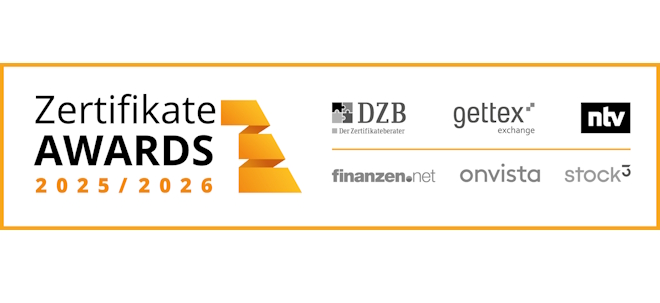Is Now the Time to Buy Small-Cap Stocks?
Werte in diesem Artikel
All major indexes hit new record highs last week after the Federal Reserve announced a 25-basis-point interest-rate cut and signaled more cuts ahead. For the small-cap Russell 2000 Index, it was the first closing record in almost four years.The stock market has been driven largely by mega-cap stocks. Over the past ten years, the S&P 500 (SPY) has gained 302%, more than double the Russell 2000’s 142% return. That outperformance has widened in recent years as AI optimism supercharged the mega-cap rally, led by NVIDIA (NVDA). Meanwhile, smaller companies have been largely overlooked by investors despite attractive valuations.Small caps rallied after President Trump’s election, when these domestically focused firms were expected to benefit from tax cuts and deregulation. However, they struggled earlier this year due to uncertainty surrounding tariffs.Last month, small and mid-sized companies led the market rally, outpacing their larger peers as economic reports raised the odds of Fed rate cuts. The Russell 2000 surged 7% in August.Small-cap companies often carry heavier debt burdens, frequently with floating interest rates, which makes them more sensitive to rate changes. They also tend to lack access to the bond market. By contrast, mega-cap companies hold large cash reserves, and many refinanced their bonds to lock in low rates before the Fed began raising them in 2022.As the Fed is expected to cut rates several more times in the coming months, smaller companies should benefit. At the same time, they remain highly dependent on continued economic growth. If the economy slips into recession, investors are more likely to retreat to larger, more stable firms.After years of underperformance, small caps now appear particularly attractive on a valuation basis. The gap between small- and large-cap valuations is the widest it has been in decades by some measures.Many high-growth small companies are also staying private for longer, supported by abundant venture capital. By the time they go public, they are often already large enough to be included in major indexes.A Tale of Two Small-Cap IndexesSince its inception in May 2000, the iShares Core S&P SmallCap 600 (IJR) has returned over 923%, compared with about 640% for the iShares Russell 2000 ETF (IWM).According to a study by S&P Dow Jones Indices, the return difference stems largely from the S&P SmallCap 600’s built-in profitability requirement.Additionally, Russell indexes are reconstituted annually in June. Strong performers in the Russell 2000 are promoted to the Russell 1000, while underperformers from the Russell 1000 are moved down. This forces fund managers tracking the Russell 2000 to sell winners and buy laggards, often creating downward price pressure.This year, however, IWM has outperformed due to a surge in some of its holdings, including Credo Technology (CRDO) and IonQ (IONQ).Small-cap stocks also tend to receive little or no analyst coverage, making stock selection difficult for most retail investors. Given their higher volatility, diversified ETFs often provide a more effective way to invest in the space.To learn more about IWM, IJR, the Invesco S&P SmallCap Momentum ETF (XSMO), and VictoryShares Small Cap Free Cash Flow ETF (SFLO), please watch the short video above.Boost Your Portfolio with Our Top ETF InsightsZacks' exclusive Fund Newsletter delivers actionable information, top news and analysis, as well as top-performing ETFs, straight to your inbox every week.Don’t miss out on this valuable resource. It’s free!Get it now >>Want the latest recommendations from Zacks Investment Research? Today, you can download 7 Best Stocks for the Next 30 Days. Click to get this free report NVIDIA Corporation (NVDA): Free Stock Analysis Report SPDR S&P 500 ETF (SPY): ETF Research Reports iShares Russell 2000 ETF (IWM): ETF Research Reports iShares Core S&P Small-Cap ETF (IJR): ETF Research Reports Invesco S&P SmallCap Momentum ETF (XSMO): ETF Research Reports IonQ, Inc. (IONQ): Free Stock Analysis Report Credo Technology Group Holding Ltd. (CRDO): Free Stock Analysis Report VictoryShares Small Cap Free Cash Flow ETF (SFLO): ETF Research ReportsThis article originally published on Zacks Investment Research (zacks.com).Zacks Investment ResearchWeiter zum vollständigen Artikel bei Zacks
Übrigens: NOW und andere US-Aktien sind bei finanzen.net ZERO sogar bis 23 Uhr handelbar (ohne Ordergebühren, zzgl. Spreads). Jetzt kostenlos Depot eröffnen und Neukunden-Bonus sichern!
Ausgewählte Hebelprodukte auf NOW
Mit Knock-outs können spekulative Anleger überproportional an Kursbewegungen partizipieren. Wählen Sie einfach den gewünschten Hebel und wir zeigen Ihnen passende Open-End Produkte auf NOW
Der Hebel muss zwischen 2 und 20 liegen
| Name | Hebel | KO | Emittent |
|---|
| Name | Hebel | KO | Emittent |
|---|
Quelle: Zacks
Nachrichten zu NOW Inc When Issued
Analysen zu NOW Inc When Issued
| Datum | Rating | Analyst | |
|---|---|---|---|
| 05.08.2019 | NOW Market Perform | Cowen and Company, LLC | |
| 03.08.2018 | NOW Buy | Stifel, Nicolaus & Co., Inc. | |
| 03.08.2018 | NOW Market Perform | Cowen and Company, LLC | |
| 03.05.2018 | NOW Market Perform | Cowen and Company, LLC | |
| 15.02.2018 | NOW Buy | Stifel, Nicolaus & Co., Inc. |
| Datum | Rating | Analyst | |
|---|---|---|---|
| 05.08.2019 | NOW Market Perform | Cowen and Company, LLC | |
| 03.08.2018 | NOW Market Perform | Cowen and Company, LLC | |
| 03.05.2018 | NOW Market Perform | Cowen and Company, LLC | |
| 15.02.2018 | NOW Market Perform | Cowen and Company, LLC | |
| 02.11.2017 | NOW Market Perform | Cowen and Company, LLC |
| Datum | Rating | Analyst | |
|---|---|---|---|
Keine Analysen im Zeitraum eines Jahres in dieser Kategorie verfügbar. Eventuell finden Sie Nachrichten die älter als ein Jahr sind im Archiv | |||
Um die Übersicht zu verbessern, haben Sie die Möglichkeit, die Analysen für NOW Inc When Issued nach folgenden Kriterien zu filtern.
Alle: Alle Empfehlungen

